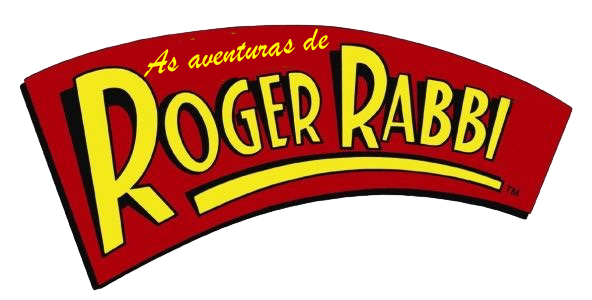A primeira vez que a palavra brachá, bênção, aparece na Torá é quando Deus abençoa Avraham na passagem que conhecemos como Lech Lechá: “Eu te abençoarei e engrandecerei o teu nome e você será uma bênção.” [1] Antes disso, o conceito já tinha aparecido como verbo “abençoar” na criação da humanidade, do shabat e ao final do episódio do Dilúvio. Nesta mesma história, temos a primeira instância em que uma pessoa abençoa o Divino, quando Noach estava no processo de abençoar alguns filhos e amaldiçoar outros [2]. A prática de os pais usarem de sinceridade absoluta quando abençoavam seus filhos, indicando suas falhas junto com as suas qualidades, parece ter sido a norma em tempos bíblicos, ainda que soe um pouco cruel hoje em dia.
Na parashá desta semana, Vaiechi, esta prática ganha tons ainda mais fortes. Iaacov, pressentindo que sua morte se aproximava, convoca seus filhos para abençoá-los seguindo a prática da sinceridade absoluta. Alguns deles recebem bênçãos doces e carinhosas, como Iehudá, a quem Iaacov estabelece como líder entre seus filhos. A outros, como Shimón e Levi, que tinham sido responsáveis pelo massacre em Shchem, Iaacov reserva reflexões duras, que melhor seriam chamadas de maldições do que de bênçãos.
Os comentaristas bíblicos têm debatido a abordagem de Iaacóv por muitos séculos. Abarbanel, um comentarista português do século XV, entendia que a preocupação do patriarca era com a identificação, entre todos os seus filhos, daqueles que tinham maior poder de liderança. Pinchas Peli, um rabino israelense que faleceu em 1989, por outro lado, acredita que o objetivo de Iaacov era ajudar seus filhos a identificarem suas próprias qualidades e defeitos e, desta forma, encontrar seu caminho dali pra frente.
Além de seus doze filhos homens, Iaacov também abençoou os dois filhos de Iossêf, Efraim e Menashé. Ao final da sua bênção aos netos, Iaacov indica que esta deve ser a prática daquele momento em diante: “através de você, Israel abençoará, dizendo ‘que Deus te faça como Efraim e como Menashé.’” [3] Esta tem sido a frase dita por muitos pais judeus a seus filhos homens ao abençoá-los. As filhas mulheres, que não foram mencionadas na bênção que Iaacov deu aos filhos, receberam uma outra formulação: “que Deus te coloque como Sará, Rivcá, Rachel e Leá.”
Há muitas interpretações sobre porque abençoar os filhos pedindo que eles sejam como Efraim e Menashé. Há quem opine que isso se deve ao fato de eles serem os primeiros irmãos na Torá que não têm conflitos entre si; outros acham que a honra se deve ao fato de eles terem nascido na Diáspora e, apesar de terem vivido sempre no Egito, terem sido capazes de manter sua identidade judaica.
Qualquer que seja o motivo, a formulação da bênção como instituída por Iaacóv sempre me incomodou e eu não a uso para abençoar meus filhos. Por mais inspiradores que algumas figuras bíblicas sejam (e não coloco Efraim e Menashé na lista das que mais me inspiram), espero que meus filhos possam crescer e se tornar eles mesmos, não cópias de outra figura, seja ela bíblica ou histórica. Uma história chassídica famosa conta que, ao chegarmos aos céus, não seremos comparados a outras figuras, mas à melhor versão de nós mesmos e é isso que eu desejo aos meus filhos.
A poetisa litúrgica norte-americana Marcia Falk escreveu a respeito da bênção proposta por Iaacov: “por que desejaríamos que uma criança fosse outra coisa senão o que ela tem de melhor? Não viver a própria vida - não ser fiel à configuração única de dons e potenciais que nutrem o eu por dentro - é uma tragédia. No entanto, deixar a criança ser ela mesma, abrir mão de expectativas que não emergem da realidade de quem a criança é, é uma das lições mais difíceis que os pais têm de aprender.” [4] Desde que meus filhos nasceram, eu uso a alternativa escrita por Falk: “Seja quem você é e seja abençoado/abençoada em tudo que você é.” Assim, busco seguir o exemplo Divino ao abençoar Avraham, desejando que meus filhos possam se tornar, eles mesmos, bênçãos.
Que neste shabat abençoado, possamos todos encontrar paz, bençãos e muita luz.
Shabat Shalom!
[1] Gen. 12:2
[2] Gen. 9:24-27
[3] Gen. 48:20
[4] Marcia Falk, “The Book of Blessings”, p. 450.
